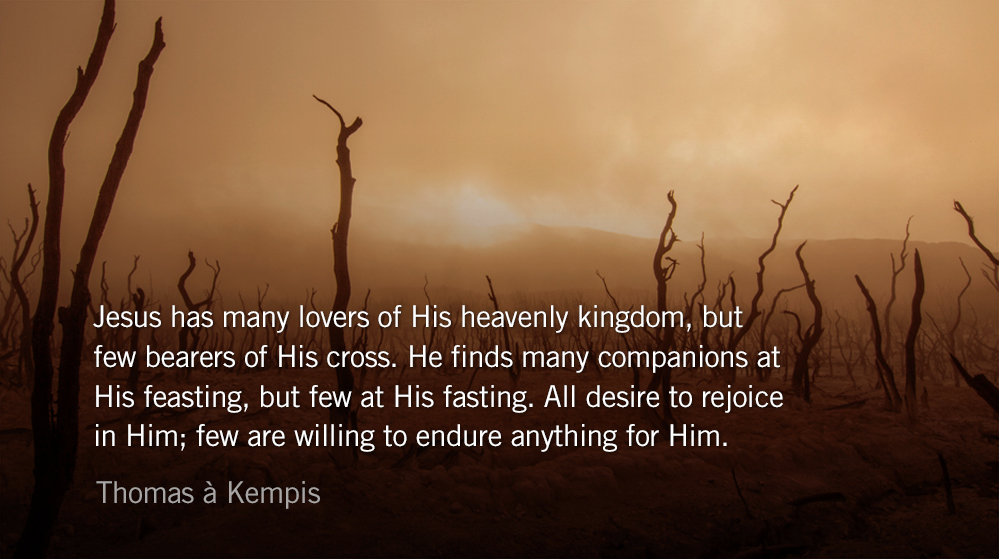By Thomas Wilcox (1621-1687)
Jesus came and touched them, saying, “Rise, and have no fear.” And when they lifted up their eyes, they saw no one but Jesus only. — Matthew 17.7-8
If you have seen Christ truly, you have seen pure grace, pure righteousness in Him in every way infinite, far exceeding all sin and misery. If you have seen Christ, you can trample upon all the righteousness of men and angels, so as to bring you into acceptance with God.
If ever you saw Christ, you saw him as a Rock, higher than self-righteousness, Satan, and sin (Psalm 61:2), and this Rock follows you (I Cor 10:4); and there will be continual dropping of honey and grace out of that Rock to satisfy you (Psalm 81:16).
Examine if ever you have beheld Christ as the only begotten of the Father, full of grace and truth (John 1:14). Be sure you have come to Christ, that you stand upon the Rock of Ages, and have answered to His call to your soul, and have closed with Him for justification.
Men talk bravely of believing, while whole and sound; but few know it.
Christ is the mystery of the Scripture; grace the mystery of Christ. Believing is the most wonderful thing in the world. Put any thing of your own to it, and you spoil it. Christ will not so much as look at it for believing.
When you believe and come to Christ, you must leave behind you your own righteousness, and bring nothing but your sin: (Oh, that is hard!) leave behind all your holiness, sanctification, duties, humblings, and so on; and bring nothing but your needs and miseries, or else Christ is not fit for you, nor you for Christ.
When the clouds are blackest, even then look towards Christ, the standing pillar of the Father’s love and grace, set up in heaven for all sinners to gaze upon continually. Whatever Satan or conscience say, do not conclude against yourself, Christ shall have the last word. He is Judge of quick and dead, and must pronounce the final sentence.
His blood speaks reconciliation (Col 1:20); cleansing (I John 1:7); purchase (Acts 20:28); redemption (I Peter 1:19); purging (Heb 9:13,14); remission (Heb 9:22); liberty (Heb 10:19); justification (Rom 5:9); nearness to God (Eph 2:13). Not a drop of this blood shall be lost.
Stand and hear what God will say, for He will speak peace to His people, that they return no more to folly (Psalm 85:8). He speaks grace, mercy and peace (II Tim 1:2). That is the language of the Father and of Christ. Wait for Christ’s appearing, as the morning star (Rev 22:16). He shall come as certainly as the morning, as refreshing as the rain (Hosea 6:3).
*Abridged and language updated from Honey Out of the Rock by Thomas Wilcox.
Today’s Reading
Jeremiah 3 (Listen – 4:40)
Matthew 17 (Listen – 3:46)









